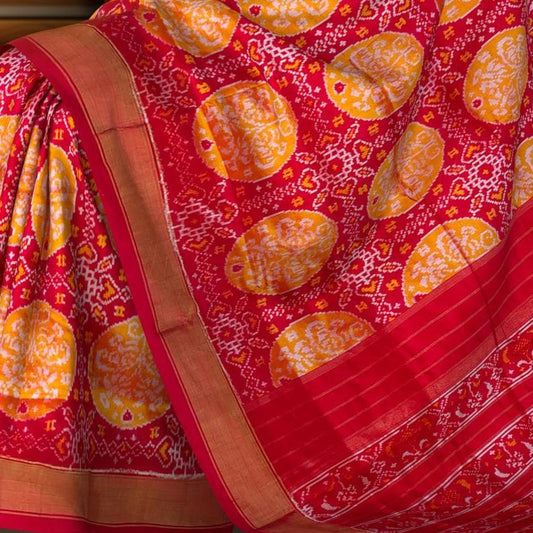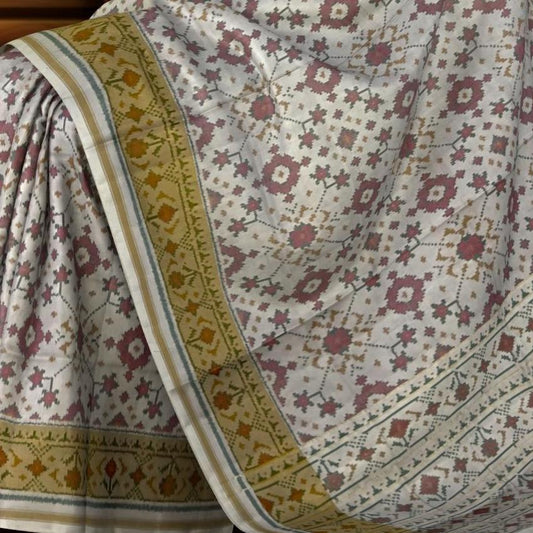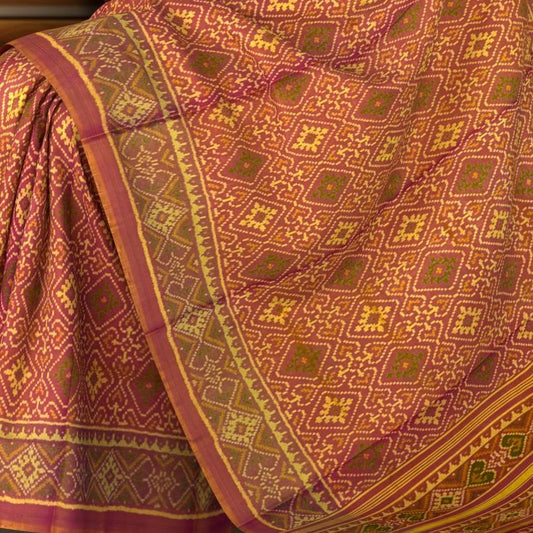Revolutionizing the Art of Handloom
ASSAM: Dipak Bhuyan may not be an engineer or a trained technician, but his passion lies in fixing appliances. At his Sivasagar home, he could often be found surrounded by an assortment of iron bars of various shapes and sizes—a collection that grew as he pursued his ambitious project 15 years ago. His hard work paid off, and after five years of unwavering dedication, he successfully developed the 'Maina Semi-automatic Handloom.' This innovation has since transformed Assam's weaving sector.
With a Bachelor of Science degree in Mathematics, Bhuyan retired as a superintendent engineer from Oil and Natural Gas Corporation in 2015. He initially started an enterprise with ten handlooms, but the response was underwhelming. Determined to create a loom that anyone could use with ease, he embarked on a journey to innovate. His relentless efforts led to the creation of a semi-automatic loom made entirely of iron in 2015, which was soon granted a patent.

In 2016, his company, Dipak Bhuyan Creation Private Limited, introduced the loom to the market. It gained immediate popularity, encouraging Bhuyan to scale up production. He continuously refined the loom, manufacturing the core components himself while outsourcing the accessories from outside Assam.
"So far, we have sold over 1,200 looms across the Northeast, primarily in Assam, with a few reaching West Bengal as well," shares Bhuyan's son, Sanglap.
What makes this loom stand out? According to Sanglap, it is the only semi-automatic loom known to function at a consistently higher speed than others. While some similar looms in Assam operate quickly, they can only sustain their speed for a minute or two. In contrast, the Maina loom can run at high speed for up to 10 minutes. Its user-friendly design allows even non-weavers to operate it with ease. Notably, Union Minister Sarbananda Sonowal tried his hand at weaving with it and managed to weave around two inches within minutes.
Sanglap highlights that the Maina Semi-automatic Handloom is five times faster than traditional handlooms and requires minimal space for operation.

"The handloom industry is struggling because weavers find it challenging to earn a fair income. In Assam, power looms are banned for producing traditional items. Since our loom enhances production speed, weavers can receive better wages. We believe our technology is unparalleled," he explains.
The price of the Maina Semi-automatic Handloom ranges between ₹90,000 and ₹1.4 lakh. However, many potential buyers face difficulties in obtaining loans due to lengthy procedures. "We receive inquiries from places like Odisha and Ahmedabad, where individuals want to purchase a single unit, possibly to replicate it. But my father is not interested in selling to such buyers," Sanglap remarks.
Recently, IIM-Calcutta showed interest in collaborating with Bhuyan's company and acquired a 3% stake, referring to it as a "mentoring share."
"We came to their attention during an event organized by the North Eastern Council in Guwahati, where 500 start-ups participated. After our presentation, IIM-Calcutta selected us as one of the top five," Sanglap shares.
Reflecting on his father's skills, Sanglap adds, "My father has always been fascinated by tools. He would dismantle and reassemble everything, driven by his curiosity. His versatility extends beyond engineering—he even served as an empaneled director for Doordarshan Guwahati."







Leave a comment
Please note, comments need to be approved before they are published.